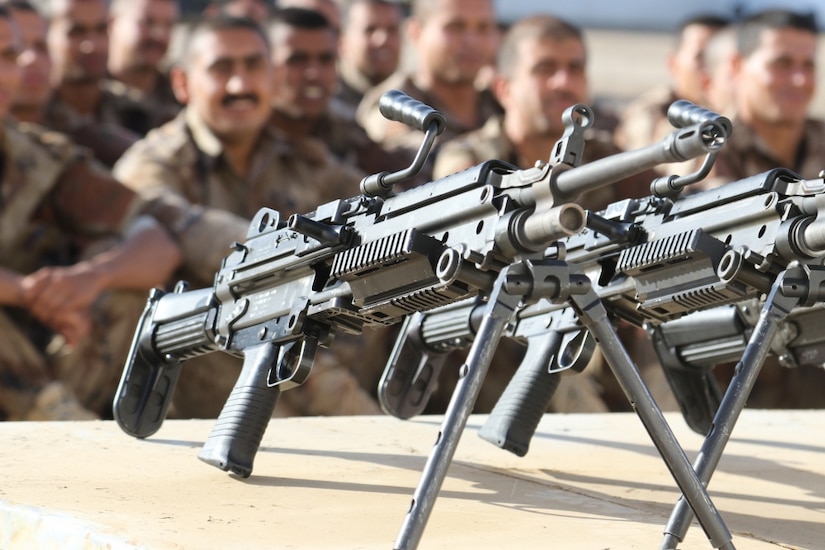SOUTHWEST ASIA -- The Combined Joint Forces Land Component
Command headquarters was deactivated today at a ceremony in Baghdad, signifying
the end of major combat operations in Iraq against the Islamic State of Iraq
and Syria and acknowledging the changing composition and responsibilities of
the coalition.
CJFLCC was responsible for coalition land force operations
in support of Iraqi security forces during the campaign to defeat ISIS in Iraq
and liberate more than 4.5 million Iraqis subject to ISIS’ brutal control.
Iraqi and coalition leaders attended the ceremony that
formally transferred CJFLCC’s command authorities to Combined Joint Task Force
Operation Inherent Resolve and featured a traditional casing of the colors
ceremony.
“Casing the CJFLCC colors is a symbolic gesture, honoring
the perseverance and sacrifice of our coalition partners,” said Army Maj. Gen.
Walter Piatt, the former commander of CJFLCC. “Thanks to our partnered success,
we are able to continue our support to the government of Iraq under the unified
command of CJTF-OIR.”
Iraqi Brig. Gen. Yahya Rasool Abdullah, spokesman for Iraqi
security forces, said CJFLCC has been an integral part of Iraq’s success
against ISIS.
“The commitment and professionalism of all the men and women
from all the coalition nations has been of the highest order, and Iraq is
immensely grateful for their sacrifice and dedication in this task,” he said.
“We look forward to taking the partnership forward with the Combined Joint Task
Force, and a friendship that will endure for years to come.”
With the deactivation of CJFLCC, its train, advise, assist
and equip missions in support of Iraqi forces are now consolidated under a
single headquarters, reflecting the coalition’s commitment to eliminate
unnecessary command structures as the nature of its support to Iraq evolves
from supporting and enabling combat operations to the training and development
of self-sufficient Iraqi security-related capabilities.







